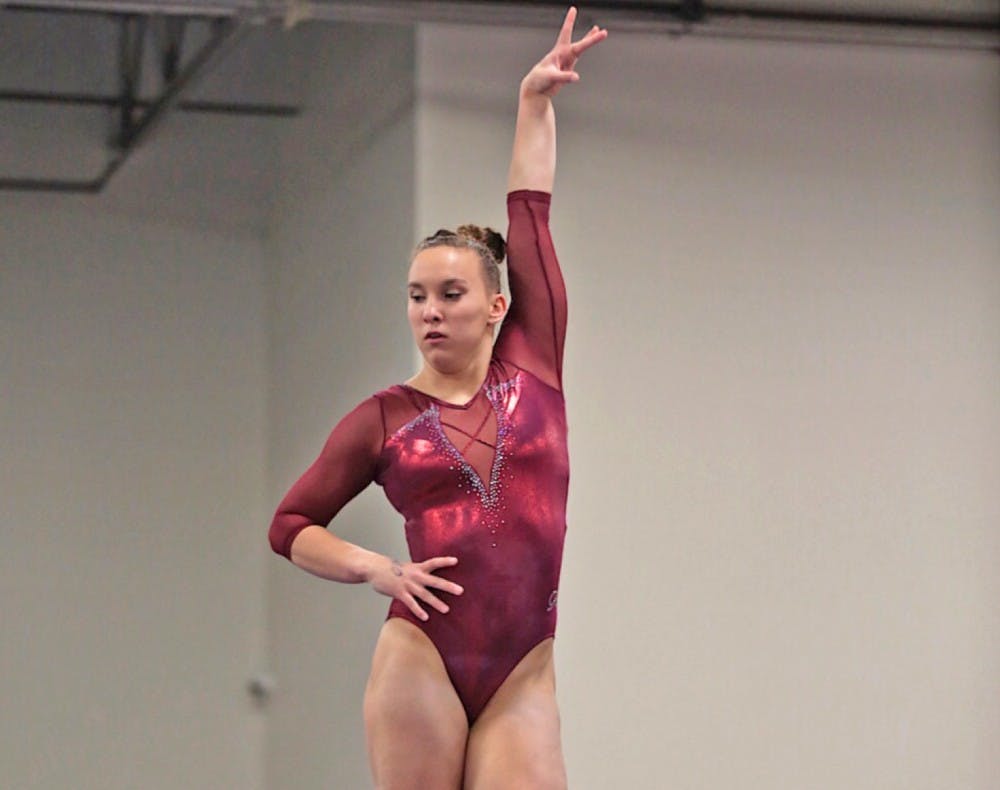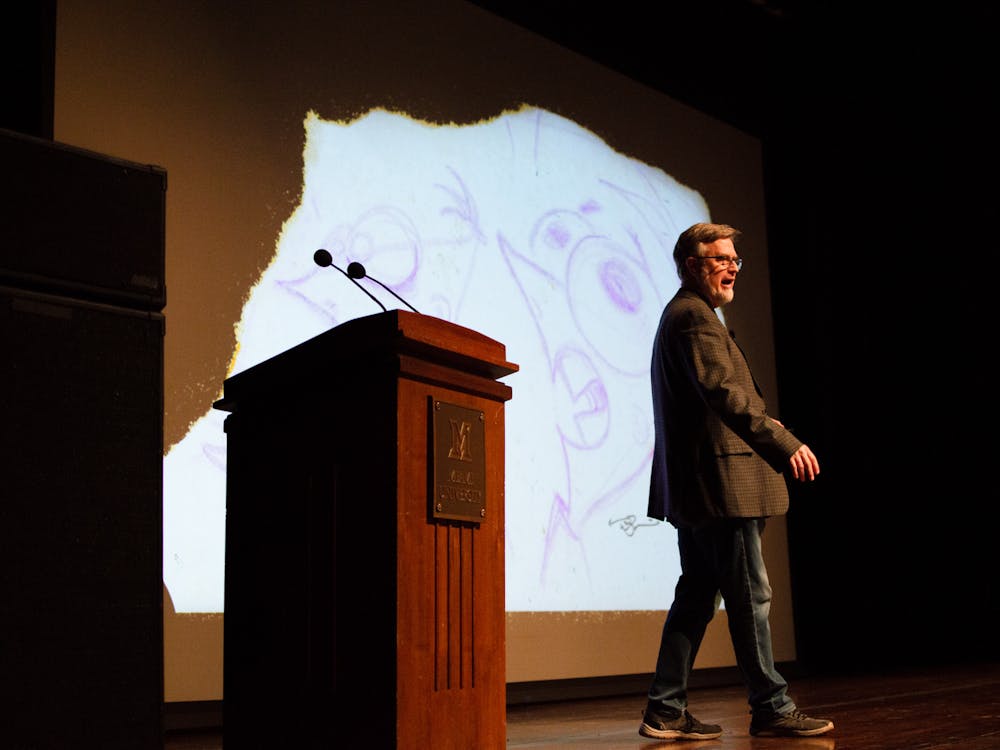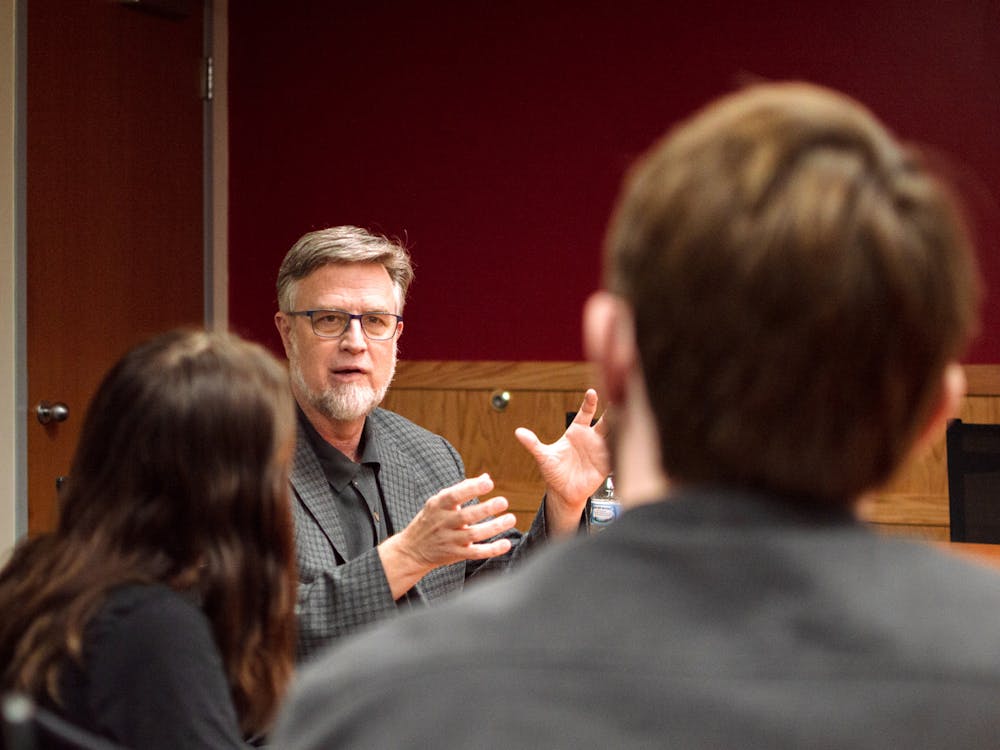First-year pre-med major Morgan Durant spent 10 years of her gymnastics career practicing for a coach who verbally abused her and her teammates. Because of the abuse she faced, she abandoned her goal of being recruited for a college team.
Durant was a gymnast from the age of three until she was a senior in high school. She joined the the USA Gymnastics Gym (USAG) in New Jersey when she was seven years old. She was the youngest member on the competitive team who dreamed of going to the Olympics someday.
"If you want to go to the Olympics, you go to USAG," Durant said.
Durant and her teammates practiced under a coach who had just graduated from college. She was strict, but the team was young and oblivious to the verbal abuse they experienced from her.
"Back then, it was just really fun," Durant said. "We were terrible and didn't know what we were doing, but we had fun."
Durant vividly remembers an encounter she and a friend had when they were eight years old. They were talking about going to the Olympics when their coach overheard them.
"When we were eight years old, we talked about the Olympics, and our coach said to us, 'you're not going,'" Durant said.
By the time Durant reached age 11, the verbal abuse occurred daily.
Durant and her teammates were threatened for treating their injuries and illnesses. There were many occasions where Durant had a fever or nausea, and went to practice anyway.
"I never missed practice," Durant said. "I went dying sick."
Durant said her coach would punish the team when they complained about pain. They were told to stop exaggerating and would face punishments in the form of conditioning for their complaints.
"I will never forget - I was 13 and had my first big injury," Durant said.
Enjoy what you're reading?
Signup for our newsletter
Durant was taken to the doctor after a recurring sharp pain in her ankle got progressively worse. Although Durant protested, her mother insisted she go to the doctor. Durant's doctor revealed that she had a chipped growth plate in her ankle.
"The doctors said they wanted to put me in a cast or boot, and I refused," Durant said. "I took a brace for something I was supposed to be casted for, and showed up to the gym and got screamed at."
Durant believes that abuse in sports tends to be normalized by the media. Lifetime's TV series Dance Moms glorifies the coach, Abby Lee and her abusive coaching style. As many other impressionable pre-teens did, Durant and her friends watched the show regularly.
"We would watch the show and think 'yeah that's about right,'" Durant said.
Durant said there was a lack of concern expressed by the USAG company, which allows abusive coaching to be a common practice in the sport.
"It's not like USAG is doing anything either," Durant said. "With the Larry Nassar case, it did not affect my teammates from the sexual abuse standpoint, but we could easily see how it happened."
Durant and her teammates weren't aware that non-abusive gymnastics coaches existed until they began competing for their high school team. Their high school coach used the USAG location to hold practices and quickly learned of the abuse that the girls had faced daily.
"Our high school coach was the one who gave us the wakeup call and told us that we needed to leave," Durant said.
Durant hesitated to ask her parents if she could leave the gym. After all, her teammates had told their parents about the abuse, and matters were only made worse for them.
"If you told your parents, they would want to talk to the coach, but if they talked to the coach, everything would get worse," Durant said.
After Durant and her teammates came to this realization, they chose not to tell anyone about the punishments they experienced at practices.
"We stopped telling our parents everything," Durant said.
Durant didn't want to leave her gym because she did not want to leave her strong support system. Her teammates meant everything to her, and they made the sport more bearable.
"I did not want to go to another gym and get verbally abused and not have my friends there with me," Durant said.
Eventually, her mom forced her to make the change, and she found a gym located an hour and a half from her house.
"I was so lucky to find the gym that I did the second time around," Durant said, "It was never scary."
After switching to her new gym during her junior year of high school, Durant quickly burned out because of the great distance she was travelling to the new gym. She ended her gymnastics career shortly thereafter.




